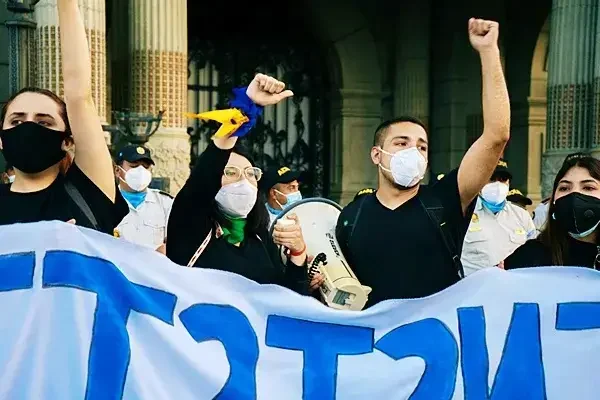Generational Shifts, Landscape of Change. The concept of civil society is continuously evolving, shaped by the emergence of new generations with distinct values and priorities.
As Baby Boomers transition out of leadership roles, Generation X, Millennials, and Generation Z are assuming various responsibilities within communities and political spheres.
This generational shift carries significant implications for societal values, as each cohort approaches civic engagement and responsibility through unique lenses.
Generational Shifts, demographic.
Demographic changes play a crucial role in reshaping the landscape of civil society. Increasing diversity across age, ethnicity, and socioeconomic status has enriched the discourse on community engagement.
For instance, younger generations tend to prioritize social justice, sustainability, and inclusivity more than previous cohorts.
This altered prioritization reflects their lived experiences, particularly in the face of global issues such as climate change and systemic inequality.
Consequently, younger individuals are more likely to champion causes that align with their values, fostering a sense of collective responsibility within the community. Moreover, the expectations of different generations regarding their roles within civil society vary significantly.
Older generations may focus on traditional ways of community interaction, including philanthropic giving or local volunteering. In contrast, Millennials and Generation Z are more inclined to utilize digital platforms for activism and community-building.
This shift not only highlights the changing methods of engagement but also underscores an increased emphasis on transparency and accountability in civic initiatives.
As we dissect these dynamics, it becomes evident that understanding the generational divide is crucial for fostering effective collaboration between age groups.
By acknowledging varying perspectives on civic responsibility and engagement, society can better navigate the complexities of modern civil discourse, ensuring that all voices are heard in shaping the future of communal living.
Differences in Political Perception.
Political engagement varies significantly across generations, shaped by individual experiences, technological advancements, and evolving social dynamics.
Younger generations often exhibit contrasting attitudes toward politics compared to their older counterparts.
For instance, millennials and Generation Z have grown up in an era characterized by economic uncertainty, climate change, and social justice movements, which have influenced their political beliefs and approaches.
Unlike previous generations that engaged primarily through established political parties and institutions, today’s youth often turn to grassroots activism and digital platforms to voice their concerns and mobilize support.
Technology plays a pivotal role in shaping the political landscape for younger individuals.
Access to information has expanded dramatically with social media, enabling youth to engage in real-time discussions and dissemination of ideas.
This shift allows them to be more informed about political issues but also presents challenges, such as the prevalence of misinformation.
Engagement through social media campaigns, online petitions, and viral movements exemplifies how younger generations differ in their method of political participation.
For example, movements like Black Lives Matter and climate activism have gained momentum largely due to the online activism spearheaded by youth.
This trend highlights a departure from traditional forms of political involvement, emphasizing direct action and community organizing over conventional voting and party affiliation.
Conversely, older generations may still lean towards established channels, reflecting a belief in the efficacy of traditional political processes.
Their experiences, shaped by historical contexts such as post-war reconstruction and economic booms, inform their views on civic duty and political tolerance.
This generational gap in ideological beliefs suggests that while the older population prioritizes stability and gradual reform, younger voters are more inclined toward immediacy and systemic change.
Understanding these differences is crucial for understanding the modern civil society landscape and the evolving dynamics of civic engagement.
Moral Perspectives Across Generations.
The concept of morality varies significantly across different generations, often leading to a discourse that highlights perceived discrepancies in values and ethics.
One notable criticism directed towards younger individuals is the alleged degradation of moral principles that older generations adhere to.
Critics argue that the youth demonstrate indifference towards traditional values, potentially fostering a decline in community engagement and social responsibility.
However, this claim requires a deeper examination to unravel the complexities of generational morality.
Younger generations, shaped by a rapidly changing societal landscape, often adopt moral frameworks that differ from those of their predecessors.
This divergence results from factors such as technological advancements, globalization, and shifts in cultural norms, introducing new ethical dilemmas that demand alternative approaches.
Consequently, moral perspectives among youth may reflect not a breakdown of values but an adaptation to contemporary challenges.
Furthermore, this evolution suggests that young individuals are not abandoning core principles but are reframing them in a way that resonates with their experiences and realities.
Of youth persist, it is essential to recognize that these views are shaped by unique experiences and contexts.
Rather than viewing the moral evolution across generations as a degradation of values, it should be seen as a redefinition that reflects an adaptive response to contemporary societal challenges.
This understanding promotes a more nuanced appreciation of the moral framework that guides future generations.
Bridging the Gap, Finding Common Ground
In an increasingly complex world, the generational divide often poses challenges to civil society.
To bridge this gap, fostering meaningful dialogue and mutual understanding between different age groups is essential.
Open communication channels can facilitate the exchange of ideas, enabling younger and older generations to learn from one another.
Initiatives that encourage discussions on civic-centric issues can diminish stereotypes and build a genuine rapport among diverse groups.
One effective strategy is the implementation of intergenerational programs, which can range from community service projects to mentorship schemes.
Such initiatives encourage younger individuals to engage in civic matters while allowing older adults to share their wisdom and experiences. These collaborative efforts not only enhance civic involvement but also instill a sense of responsibility and ownership in participants.
As younger generations become more aware of civic responsibilities, they gain confidence in addressing community challenges, ultimately leading to a more vibrant civil society.
Moreover, it is crucial for older generations to remain adaptable and open-minded to new perspectives emerging from younger citizens.
By recognizing that societal progress often stems from fresh ideas and innovative approaches, older individuals can cultivate a receptive attitude towards change.
This adaptability can also be fostered through workshops and educational programs that emphasize emerging social trends and contemporary civic issues.
Encouraging cross-generational dialogue can significantly contribute to an inclusive and engaged society.
By actively working to understand each other’s viewpoints, both younger and older individuals can unite in shared goals and aspirations.
Collaboration across generations not only promotes civic engagement but also nurtures a sense of community, which is fundamental to the health and vibrancy of civil society.
In conclusion, bridging the generational divide requires commitment, openness, and cooperative engagement to ensure a sustainable and inclusive future.
Have a Great Day!





